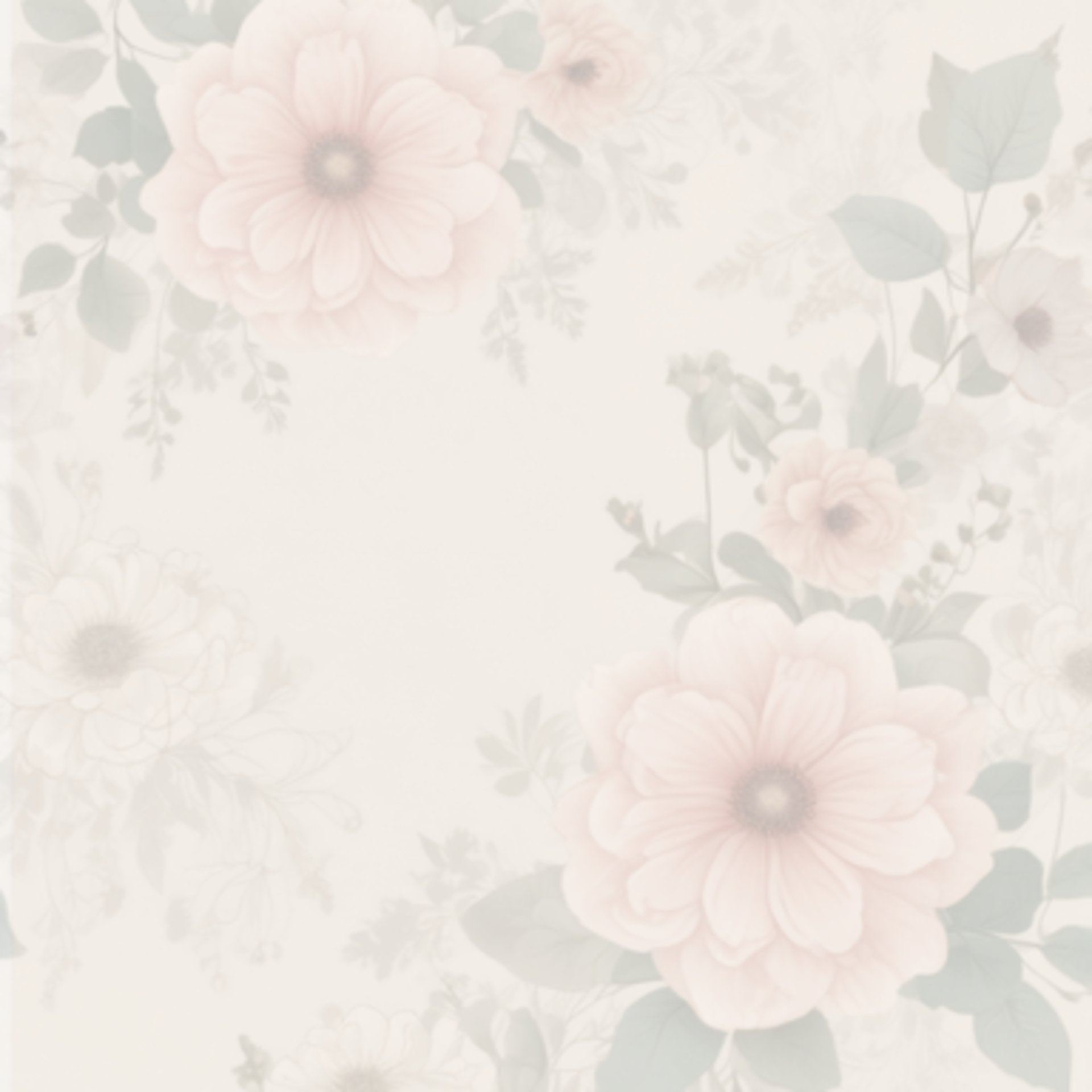
An example of a Bach Remedy
The Bach Flower Honeysuckle
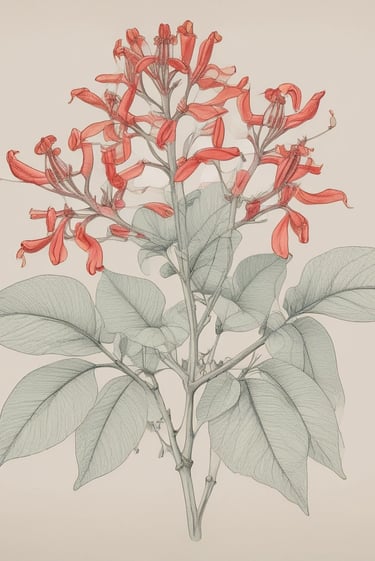

The Doctrine of Signature
Honeysuckle.
Honeysuckle is often viewed as a symbol of deep emotional bonds, love, and devotion.
The twisting vines and tendrils, wrapping around any support and other plants, create an image of strong, lasting connections with loved ones, making it hard to let go, much like the Bach Flower remedy.
This unity signifies loyalty and steadfastness, a commitment that endures over time, even beyond its original ties.
Honeysuckle supports those who have lost a someone dear to them, helping them cherish fond memories of the past while recovering emotionally and moving forward in life. There is a tendency toward over-attachment to the past.
Honeysuckle is particularly useful for separation anxiety in animals left alone for long periods, as the stress they feel can resemble the grief of losing a loved one forever.
The goal of Honeysuckle is to let go of the past and look forward to a brighter future helping the animal or human become self-assured and adapt to a new home or environment.

Dr. Edward Bach's system of Bach flower remedies work exclusively on an emotional level. He believed balancing negative emotions and behaviour was key to achieving and maintaining physical health.
The remedies do not treat physical ailments directly.
Bach remedies are perfectly safe for animals, humans of all ages, and all levels of consciousness.
They can be used by adding drops to a bath, applying them to pulse points on the unconscious, or rubbing them on the soles of small babies' feet.
For animals, the drops can be added food, drinking water, or spritzed on bedding. The applications are endless.
Dr. Bach envisioned a safe and effective medicine that anyone could use easily and effectively.
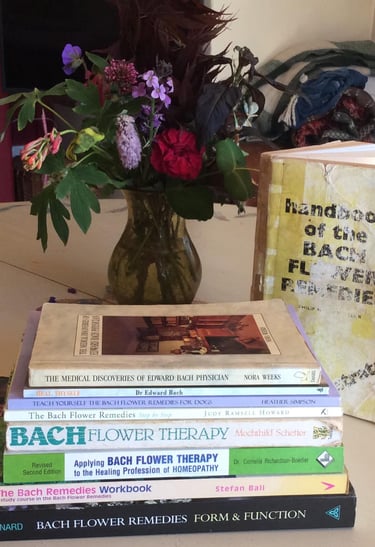

Dr Edward Bach Philosophy

How do I use the remedies?
You can use Bach flower remedies by taking a few drops directly or adding them to water or food. Stroke onto fur or spritz bedding.
How long do they take to work?
Results vary, but many people notice changes within a few days to weeks of consistent use.
How do I use the remedies?
You can use Bach Flower Remedies by placing a few drops directly into the mouth, or by adding them to water, food, or a treat. You can also stroke a few drops onto fur, feathers, or skin, or spritz lightly onto bedding for gentle emotional support.
How long do they take to work?
Results vary. Some animals (and people) show a shift within a few days, while others respond gradually over a few weeks. Gentle consistency is key, small, regular doses work best.
Are Bach Flower Remedies safe for animals?
Yes. They are completely natural and non-toxic, with no side effects. Bach Flowers work on an energetic level to restore balance and can be used safely alongside veterinary care or other therapies.
While the Bach Flowers should not replace conventional Allopathic or Veterinary treatment, the remedies can complement medical care by addressing the emotional aspects of illness and recovery.
Bach Flower Questions and Answers



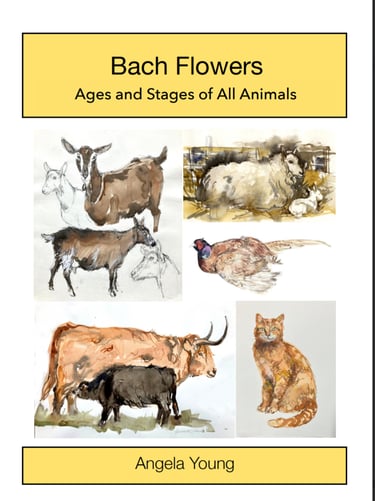

Angela's Book Launch - coming soon
Bach Flowers Ages and Stages
Of All
Animals.
Discover the healing power of Bach Flowers for animals of all ages.
Written with love and insight by Angela Young.

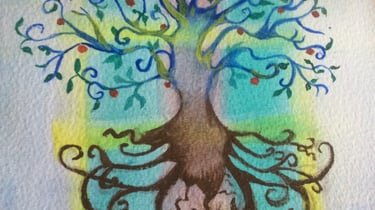

Join us on our Facebook Group
Bach Flowers For Cats and Dogs
(and all other animals, including humans).

